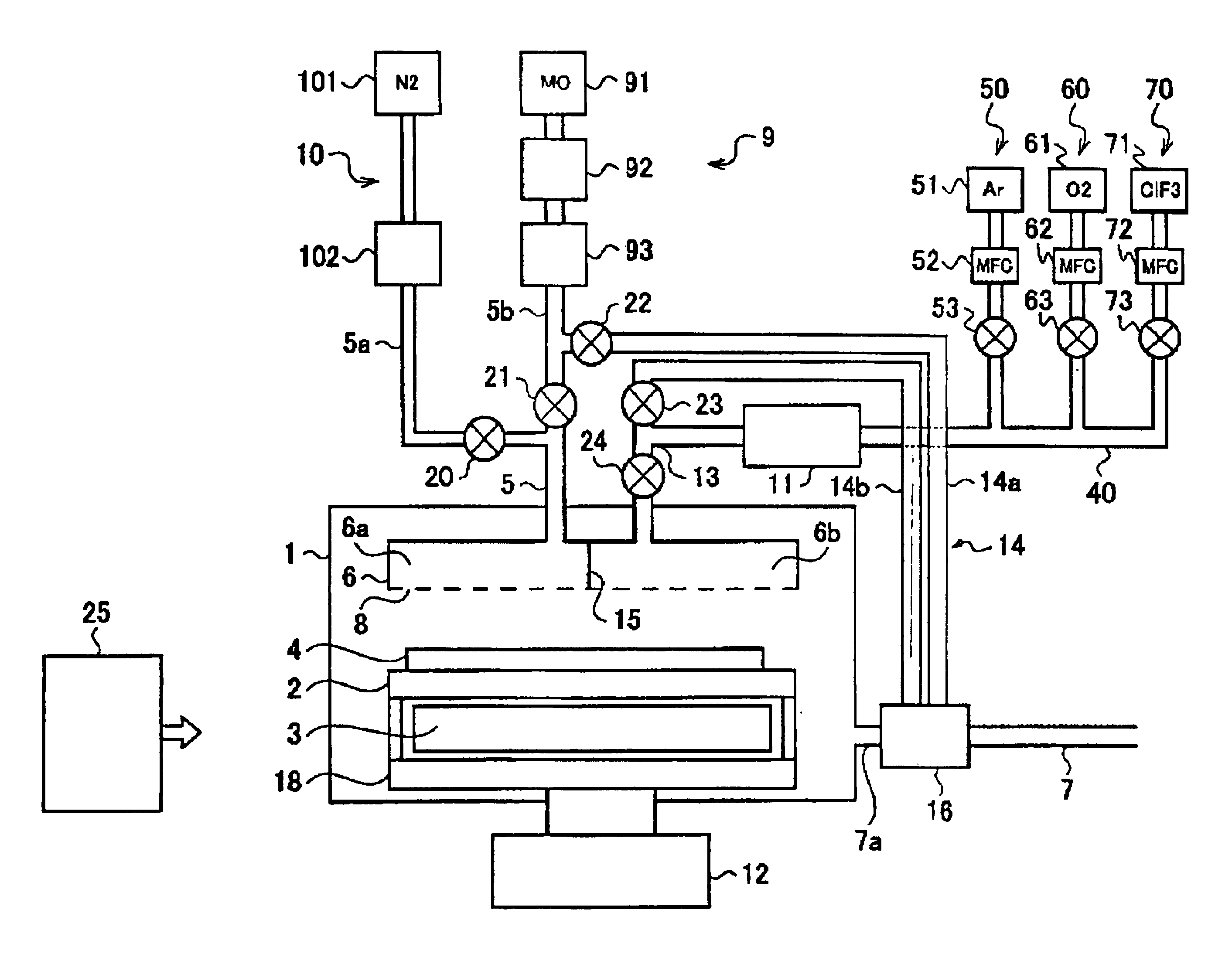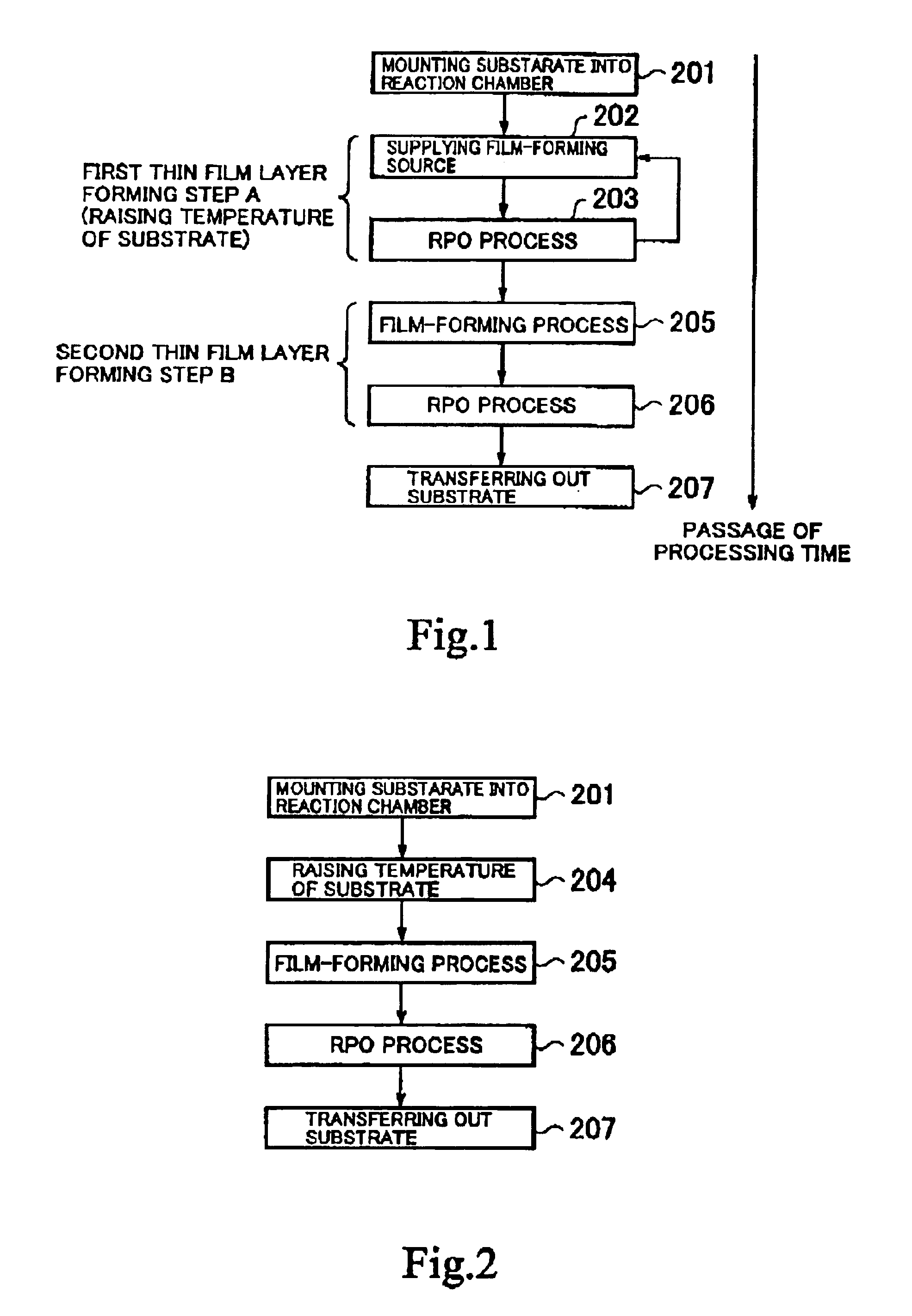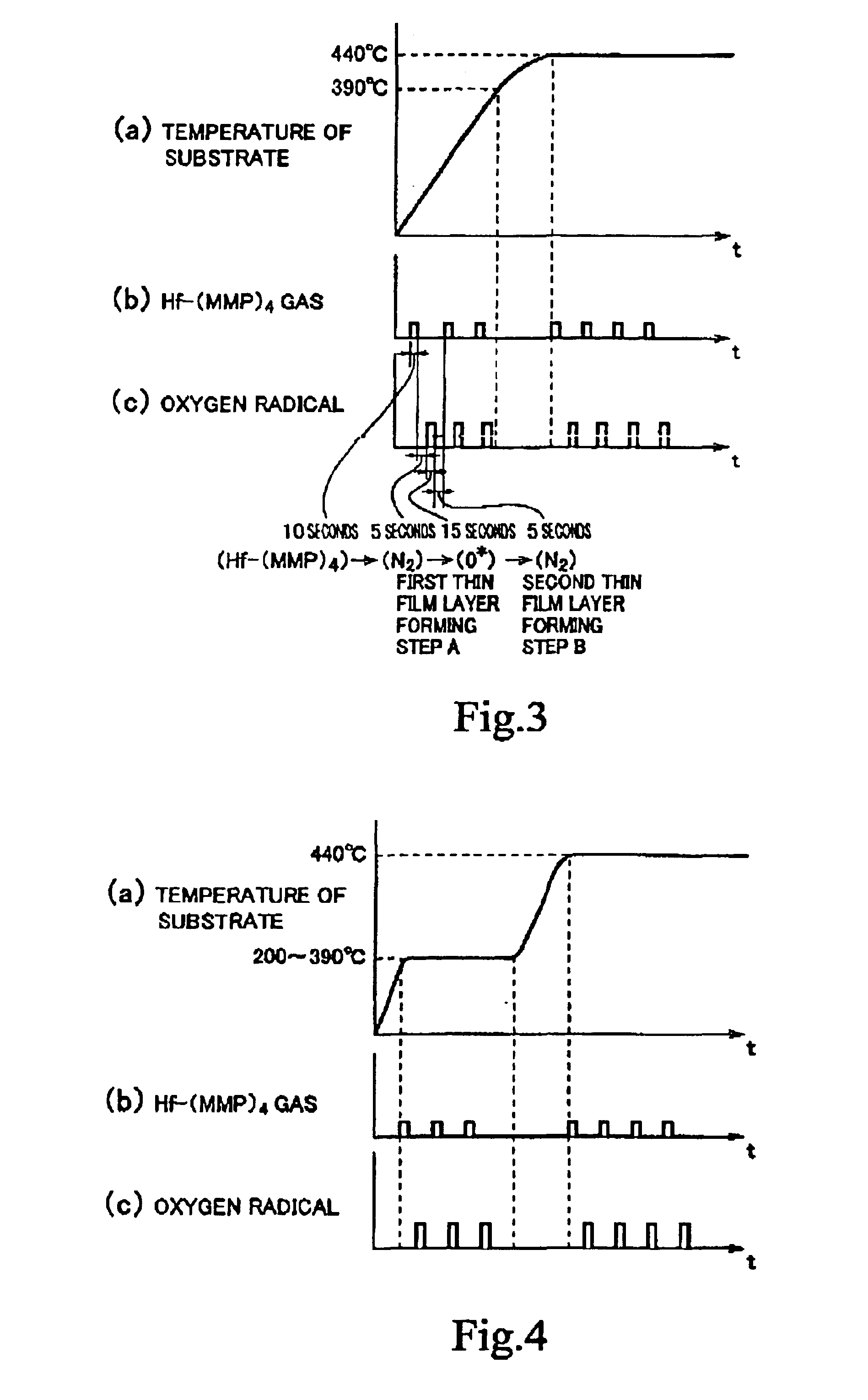Manufacturing method of semiconductor device and substrate processing apparatus
a manufacturing method and substrate technology, applied in the direction of coatings, chemical vapor deposition coatings, metallic material coating processes, etc., can solve the problems of difficult to obtain difficult to achieve the thin film deposited by the mocvd method, etc., to improve the flatness of the thin film without lowering productivity
- Summary
- Abstract
- Description
- Claims
- Application Information
AI Technical Summary
Benefits of technology
Problems solved by technology
Method used
Image
Examples
first embodiment
[0099]FIG. 9 is a schematic view showing an example of a single wafer type CVD apparatus which is a substrate processing apparatus relating to the embodiments. A radical generating unit 11, a substrate rotating unit 12, an inert gas supply unit 10 and bypass pipes 14 are mainly added to a conventional reaction chamber 1 (FIG. 10).
[0100]A hollow heater unit 18 whose upper opening is covered with a susceptor 2 is provided in the reaction chamber 1 as shown in FIG. 9. A heater 3 is provided in the heater unit 18 and the heater 3 is adapted to heat a substrate 4 mounted on the susceptor 2 to a predetermined temperature. The substrate 4 mounted on the susceptor 2 is, for example, a semiconductor silicon wafer, a glass substrate, or the like.
[0101]The substrate rotating unit 12 is provided outside the reaction chamber 1 and the substrate 4 on the susceptor 2 can be rotated by rotating the heater unit 18 in the reaction chamber 1. The substrate 4 is rotated so that a source gas introduced ...
second embodiment
[0163]Incidentally, though the first thin film layer is formed while the temperature is raised in the above-described process timing according to the first embodiment in FIG. 3, the first thin film layer may be formed not while the temperature is raised but while a predetermined low temperature (at least 200° C. no more than 390° C.) is kept. FIG. 4(a) to FIG. 4(c) show a timing chart of the process of the second embodiment in which the first thin film layer forming step [the supply of the source gas→the supply of the oxygen radical] is repeated for n cycles in a condition that such a low temperature is kept. FIG. 4(a) shows a property of raising temperature of the substrate, in which a horizontal axis indicates time and a vertical axis indicates temperature. FIG. 4(b) shows a timing of supplying the Hf-(MMP)4 source gas and FIG. 4(c) shows a timing of supplying the oxygen radical respectively, in which a horizontal axis indicates time and a vertical axis indicates a supply amount (...
third embodiment
[0167]FIG. 11 shows a process flow according to a third embodiment. As shown in this drawing, in this embodiment, a film is formed in such a manner that a step of making a source gas adhere onto a substrate (step 202) and a step of forming a film (HfO2 film) by supplying onto the substrate a reactant which is obtained by plasma activation of a gas containing an oxygen atom (step 203) are repeated a plurality of times in this order during a period from the transfer of the substrate into a reaction chamber (step 201) to the transfer of the substrate out of the reaction chamber (step 207). In other words, the second thin film layer forming step is not performed in this embodiment, and n cycles of [the film-forming source supply (step 202)→the RPO process (step 203)] are repeated from the beginning to the end, thereby forming the film. Here, the film-forming source supply (step 202) and the RPO process (step 203) are performed in this order so that such an effect is obtainable that EOT ...
PUM
| Property | Measurement | Unit |
|---|---|---|
| temperature | aaaaa | aaaaa |
| temperature | aaaaa | aaaaa |
| temperature | aaaaa | aaaaa |
Abstract
Description
Claims
Application Information
 Login to View More
Login to View More - R&D
- Intellectual Property
- Life Sciences
- Materials
- Tech Scout
- Unparalleled Data Quality
- Higher Quality Content
- 60% Fewer Hallucinations
Browse by: Latest US Patents, China's latest patents, Technical Efficacy Thesaurus, Application Domain, Technology Topic, Popular Technical Reports.
© 2025 PatSnap. All rights reserved.Legal|Privacy policy|Modern Slavery Act Transparency Statement|Sitemap|About US| Contact US: help@patsnap.com



